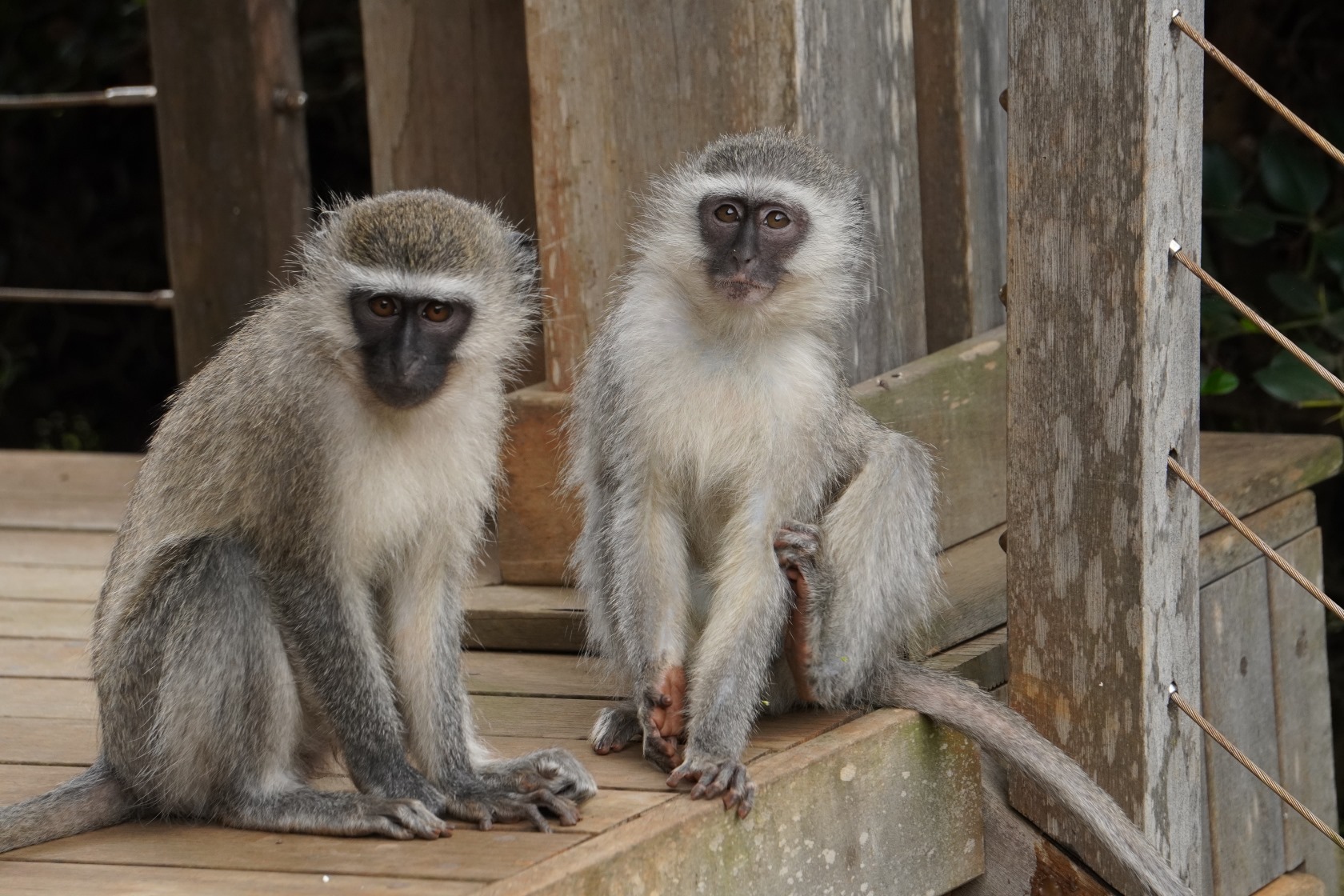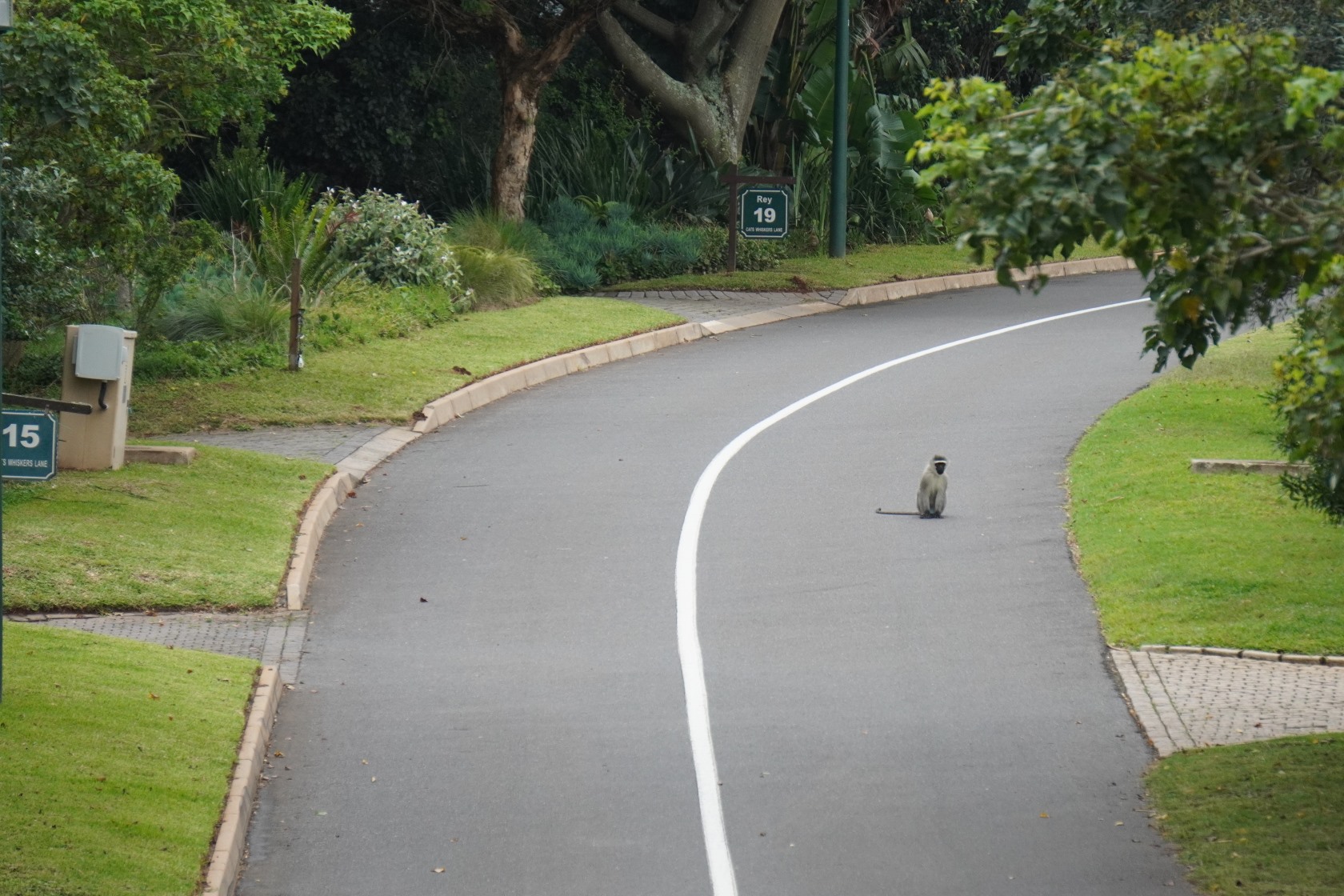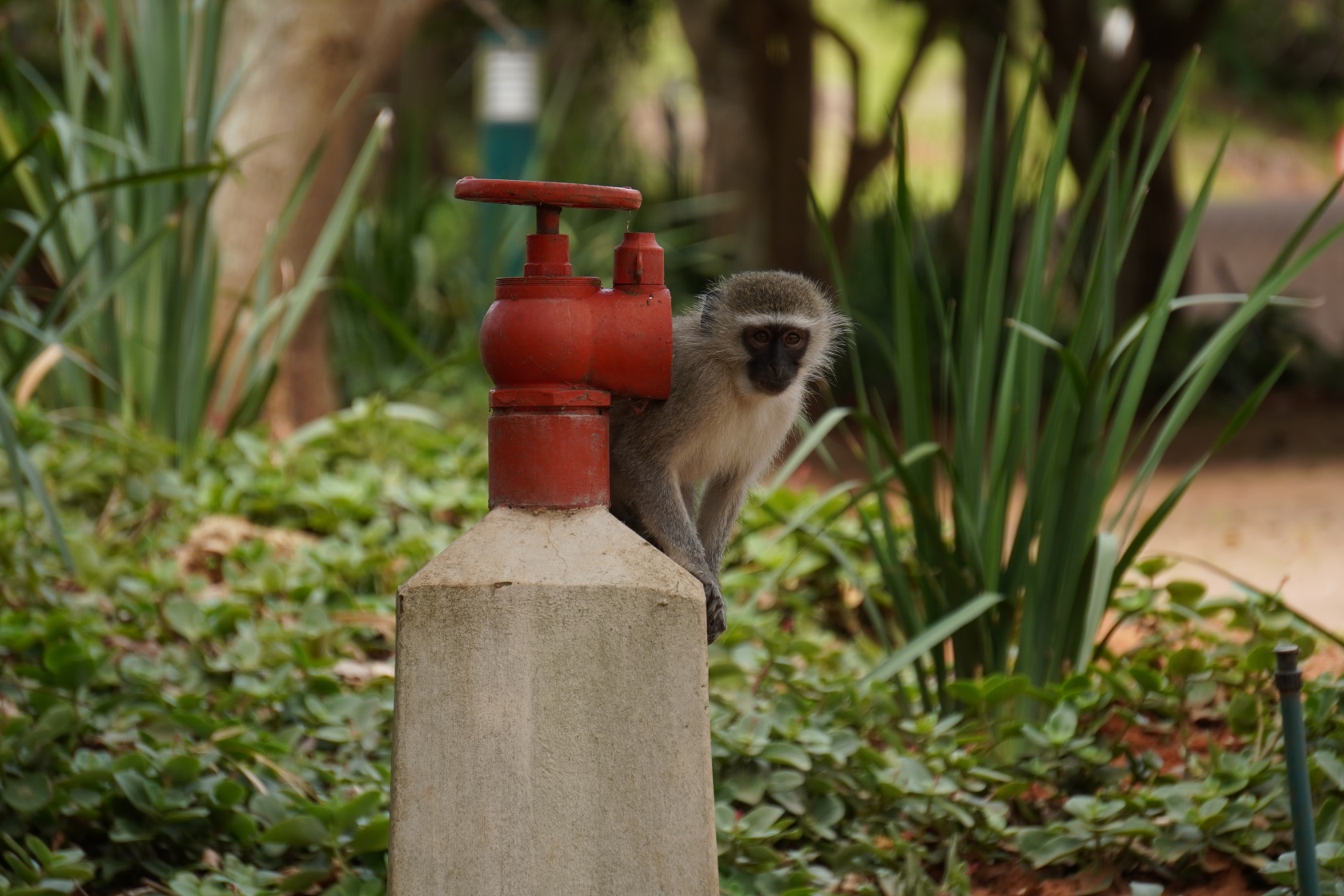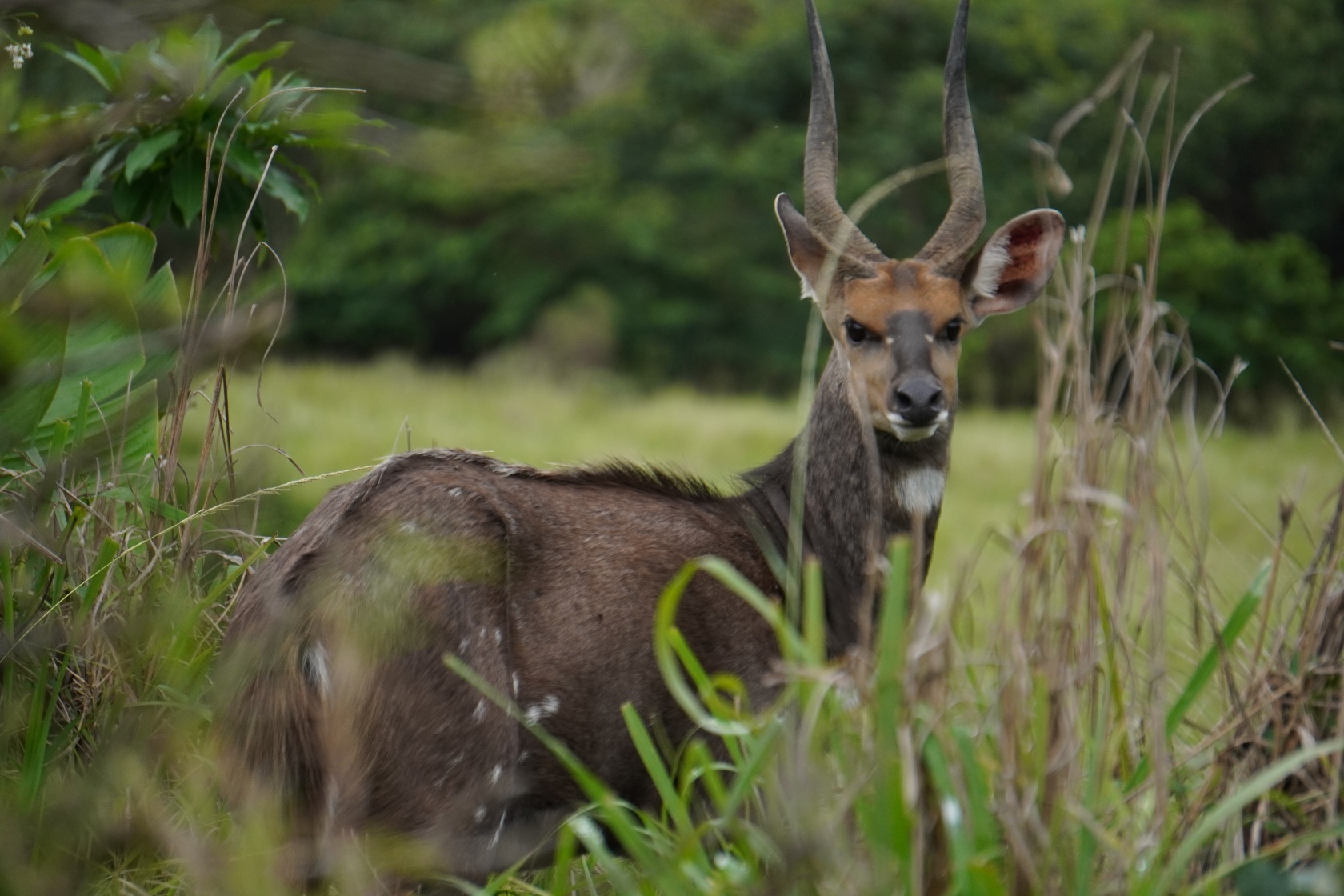Simbithi Eco Estate
The Simbithi Eco Estate is located near Ballito at the East Coast of the South African province KwaZulu Natal reachable within a half hour drive from Durban King Shaka International Airport. This 430ha eco estate constitutes a privately owned residential community with various housing and leisure areas and serves as the study site for the Urban Vervet Project. The Urban Vervet Project, founded in 2022, is led by Dr. Sofia Forss, Department of Evolutionary Biology and Environmental Sciences, University of Zurich and is currently financed by the KONE Foundation (Finland) and the Swiss National Science Foundation (Switzerland). The project operates in collaboration with the University of Kwazulu Natal (Prof. Colleen Downs) and the Inkawu Vervet Project (Prof. Erica van de Waal).
Due to the anthropogenic impact on the world’s ecosystems, on a global scale species diversity of non-human animals is declining, yet interestingly, some animals are thriving in human altered environments. The Simbithi estate is eco-friendly and made up entirely of indigenous plant species that provide a home for a vast array of wildlife, such as duikers, bushbucks, porcupine, mongoose, spotted genet, and over 300 bird species. Beyond various mammal and bird species, Simbithi is home to multiple free-roaming troops of vervet monkeys (Chlorocebus pygerythrus) and the research aim of the Urban Vervet Project is to study the behavioral ecology of these primates in an anthropogenic and transforming landscape. The Urban Vervet Project studies:
- Behavioral flexibility in an urban ecological context
- Life history consequences of urbanization
- Cognitive causes and consequences of anthropogenic impacts on primate populations
- Behavioral responses due to arising selection pressures
Links:
- Urban Vervet Project: https://urbanvervetproject.weebly.com/
- Simbithi Eco Estate: https://www.simbithi.com/




